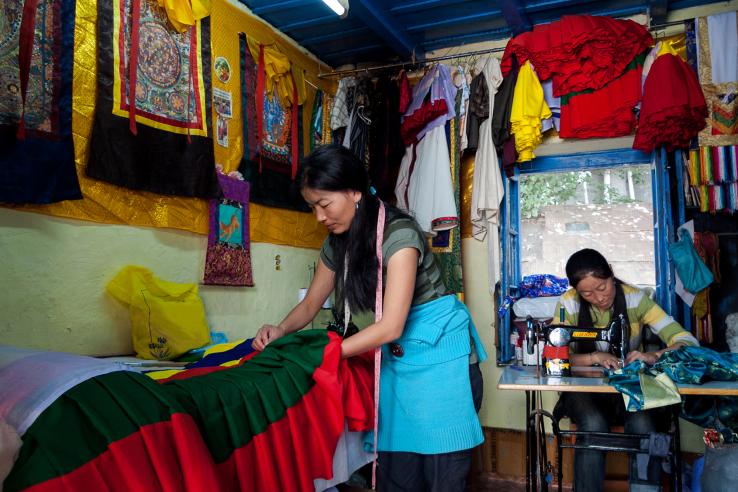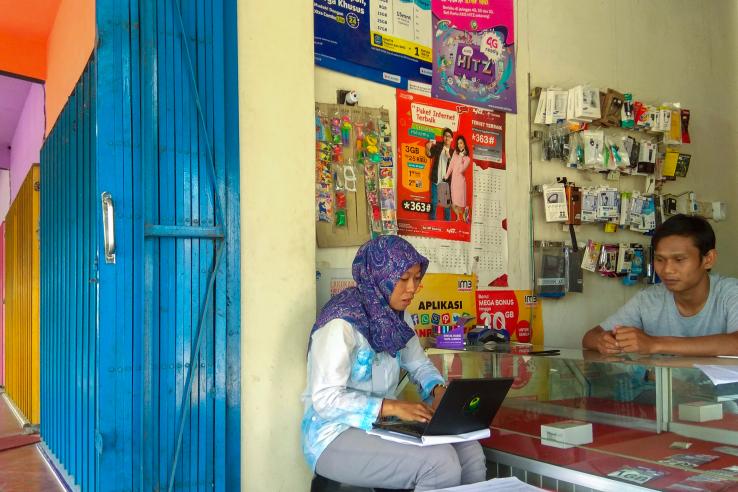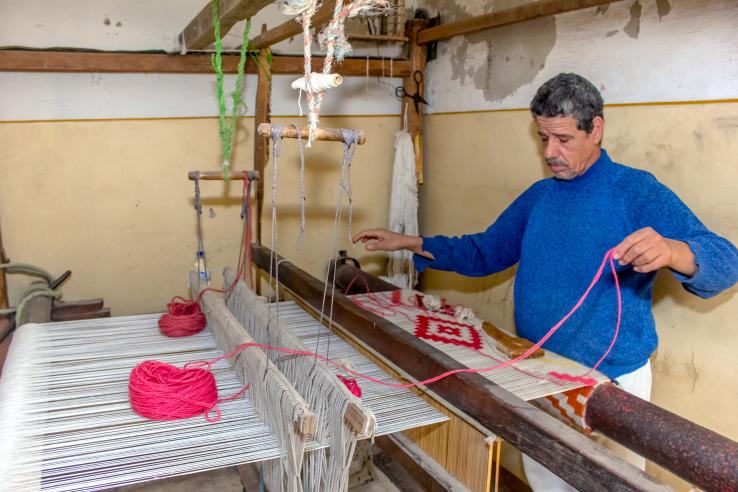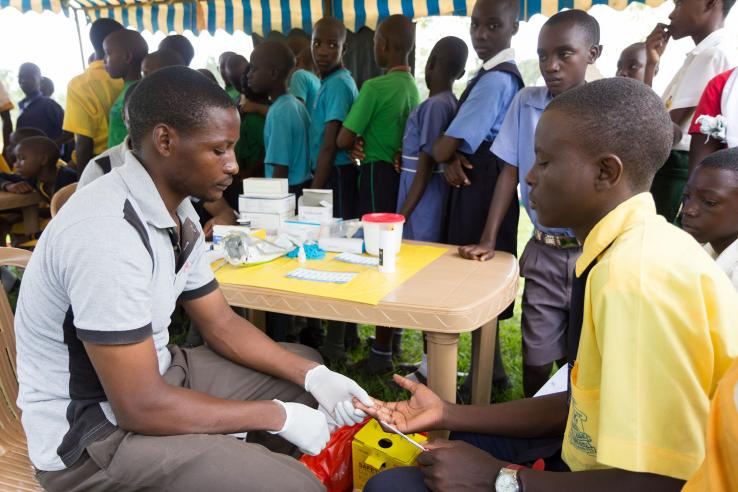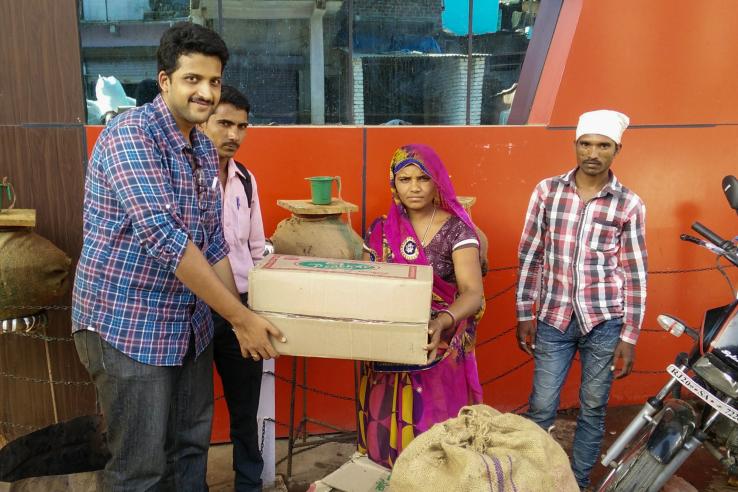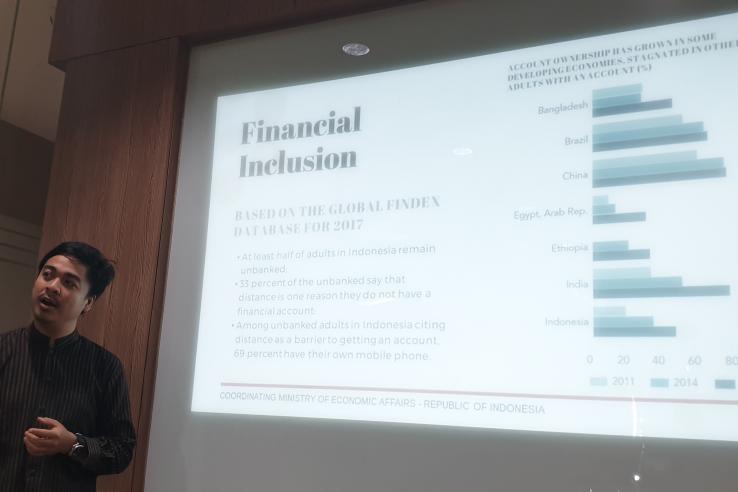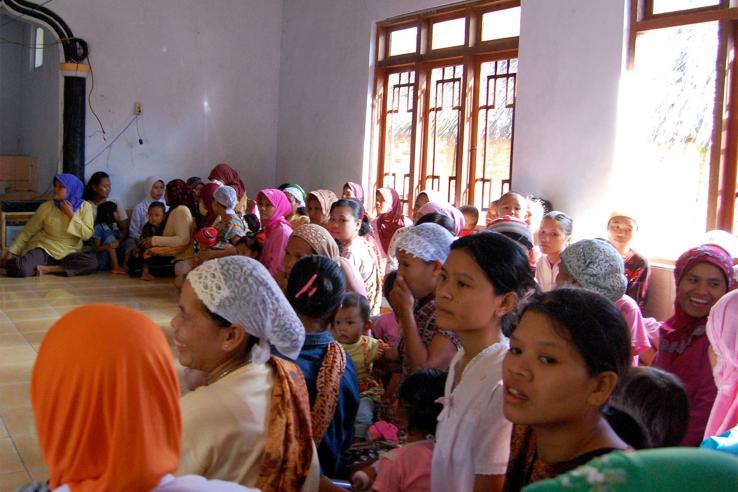Displaying 1471 - 1485 of 7937
Blog
While there are many theories of the sources of the differences in size and wealth of economies between countries, economists have long argued that productivity gaps between firms in the private sector are a major contributor.
Evaluation
Researchers are evaluating the impact of providing information about the risks and outcomes of irregular migration through door-to-door campaigns and social networks on actual migration decisions in Nigeria.
Blog
For those in Indonesia with access to mobile phones and digital literacy, e-commerce and digital financial services may help people to maintain their livelihoods. Not only do digital financial services offer a fast and contactless means of payment and transfer, but evidence from around the world has...
Blog
From 2011 to 2014, J-PAL affiliates David Atkin and Adam Osman, with co-author Amit K. Khandelwal, evaluated small rug producers in Egypt to understand how exporting affects firms’ profits and productivity.
Blog
Irwan joined J-PAL SEA’s research team in 2016 after completing his master’s in banking and finance. After two years at J-PAL working on research projects related to financial inclusion in Indonesia, Irwan transitioned to a program management role within Indonesia’s National Council for Financial...
Blog
J-PAL affiliate Lisa Cameron has dedicated much of her career as an empirical and behavioral economist to researching how economic issues impact women. Lisa is drawn to economics research not only because it provides a window into understanding human behavior, but also because it has the potential...
Blog
Di bulan April, pemerintah mengumumkan pemberlakuan Pembatasan Sosial Berskala Besar (PSBB) dan melarang perjalanan mudik Idul Fitri, dimana puluhan juta orang Indonesia biasanya kembali ke kota/desa asal mereka untuk merayakan bersama keluarga. Pembatasan-pembatasan lainnya juga berupa instruksi...
Policy insight
Cash transfer programs conditional on the use of health products and services generally increase uptake and improve child health outcomes among households that receive them. Cash transfers that increase uptake of healthy behaviors in the short term can improve cognition and educational outcomes in...
Blog
J-PAL South Asia Executive Director Shobhini Mukerji writes, "Working alongside Esther and Abhijit for more than a decade has given me immense appreciation for the brilliant yet unpretentious people they are, especially with the staff they work with."
